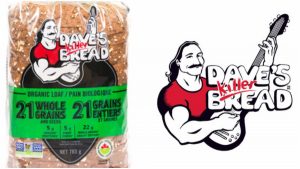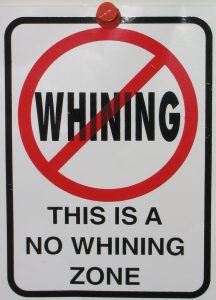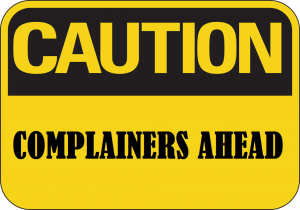A Good Piece of Meat
Dictionary.com lists the following definitions for the well known idiom ‘piece of meat’:
– a person regarded merely as a sex object; a person, as a prizefighter or laborer, regarded merely as a strong or useful physical specimen. Avada we all know what the expression means while shopping at the butcher counter. Another on-line source says azoy: This is a fairly standard expression used to indicate that someone feels useful only for physical characteristics: what the body can supply to other people. Hence the “meat.” Ober, what exactly did it mean in the year 2448 back in the midbar where the Yiddin were traversing from place to place? And more specifically, what did the word mean in a place called Kivrois Ha’ta’ahva? Where is that? Read all the way to the end to find out.
 Recently the Oisvorfer was introduced to “Dave’s killer Bread,” a brand of bread which comes in several varieties. Who names their bread “Killer Bread” and why? Does it mamish kill people? Or, is pshat punkt farkert (exactly the opposite)? Is pshat that Dave’s bread is so damn good, they call it killer-bread as they do in business to connote that one is extremely successful? And for the answer, the Oisvorfer went to the website where he found this: “The history of Dave’s Killer Bread began in 2005, when co-founder Dave Dahl was welcomed back to the family bakery by his older brother Glenn after serving 15 years in prison. Dave seized the opportunity and worked tirelessly to develop a killer new recipe for organic and Non-GMO bread, which was debuted at the Portland Farmers Market in 2005. Dave’s Killer Bread was an instant hit.” The bottom line: neither Dave, nor his bread killed anyone; grada, it’s low in calories and quite delicious.
Recently the Oisvorfer was introduced to “Dave’s killer Bread,” a brand of bread which comes in several varieties. Who names their bread “Killer Bread” and why? Does it mamish kill people? Or, is pshat punkt farkert (exactly the opposite)? Is pshat that Dave’s bread is so damn good, they call it killer-bread as they do in business to connote that one is extremely successful? And for the answer, the Oisvorfer went to the website where he found this: “The history of Dave’s Killer Bread began in 2005, when co-founder Dave Dahl was welcomed back to the family bakery by his older brother Glenn after serving 15 years in prison. Dave seized the opportunity and worked tirelessly to develop a killer new recipe for organic and Non-GMO bread, which was debuted at the Portland Farmers Market in 2005. Dave’s Killer Bread was an instant hit.” The bottom line: neither Dave, nor his bread killed anyone; grada, it’s low in calories and quite delicious.
 Nu, efsher you’re klerring azoy: what has Dave’s killer bread to do with our parsha? Is bread mentioned anywhere in Parshas Behaloischo? Grada it’s not. Ober Munn is and so are a few other food items including meat, fish, cucumbers, leeks, onions and garlic. So happens that this week’s parsha which you will likely hear either outside the shul, or perhaps, even inside a real shul this shabbis -avada while donning a mask- contains some high drama which involved not killer bread but killer meat. Meat kills? It’s taka emes and bavust (well known) that our doctors warn us to avoid overindulging on red meat as it’s been linked to myriad health issues. Researchers say that red meat contains important nutrients, including protein, vitamin B-12, and iron. However, there is evidence to suggest that eating a lot of red meat can raise a person’s risk of certain cancers, heart disease, and other health concerns. The bottom line: eating too much meat can make you sick, says New York-Presbyterian Hospital. Too much red meat — especially processed meats like sausages, salami, and hot dogs — contribute to chronic conditions like heart disease, diabetes and obesity. And, according to others, high red meat consumption increased the rate of dying from cancer, heart disease, respiratory disease, stroke, diabetes, infections, kidney disease and liver disease. The bottom line: every source tells us to avoid too much red meat. Ober does meat mamish kill? Can it do so instantly, or does it take years of meat-abuse? And if instant-killer meat weren’t enough, our parsha also contains another reference to killing and death as Moishe himself asks the RBSO to kill him; he wants out. He does? Mamish? What would cause Moishe to request death?
Nu, efsher you’re klerring azoy: what has Dave’s killer bread to do with our parsha? Is bread mentioned anywhere in Parshas Behaloischo? Grada it’s not. Ober Munn is and so are a few other food items including meat, fish, cucumbers, leeks, onions and garlic. So happens that this week’s parsha which you will likely hear either outside the shul, or perhaps, even inside a real shul this shabbis -avada while donning a mask- contains some high drama which involved not killer bread but killer meat. Meat kills? It’s taka emes and bavust (well known) that our doctors warn us to avoid overindulging on red meat as it’s been linked to myriad health issues. Researchers say that red meat contains important nutrients, including protein, vitamin B-12, and iron. However, there is evidence to suggest that eating a lot of red meat can raise a person’s risk of certain cancers, heart disease, and other health concerns. The bottom line: eating too much meat can make you sick, says New York-Presbyterian Hospital. Too much red meat — especially processed meats like sausages, salami, and hot dogs — contribute to chronic conditions like heart disease, diabetes and obesity. And, according to others, high red meat consumption increased the rate of dying from cancer, heart disease, respiratory disease, stroke, diabetes, infections, kidney disease and liver disease. The bottom line: every source tells us to avoid too much red meat. Ober does meat mamish kill? Can it do so instantly, or does it take years of meat-abuse? And if instant-killer meat weren’t enough, our parsha also contains another reference to killing and death as Moishe himself asks the RBSO to kill him; he wants out. He does? Mamish? What would cause Moishe to request death?
Nu, let’s start there. Growing up, whenever Parshas Tetzaveh came around, the rebbe would explain that Moishe’s name which otherwise appears in every single parsha from his birth in Parshas Shmois until the end of the heylige Toirah, is missing from Parshas Tetzaveh. And why is it missing? As explained, mistama based on a medrish they found somewhere, it went missing at Moishe’s request. He simply told the RBSO to erase his name from the RBSO’s Toirah. Why would Moishe want out? Efsher you recall, and avada you should, that the Yiddin sinned by reveling with the golden calf, a sin that continues to plague us these past 3200 years. Our sages tell us that in each generation, as the RBSO metes out various punishments, a shtikel of each harkens back to the sin of the eygel. As the Ois has told you over and again these past 10 and ¾ years, the RBSO has a long memory and while He tends to forgive many other indiscretions -if you ask nicely- He is not forgiving when it comes to avoido zoro. While on the topic, here’s a bit of good news: He has been known – take Yehudah and or Dovid Hamelech (King David) by way of example only, there are more- to forgive sexual indiscretions, other forms of meat abuse, if you chap, ober when combined with avoido zoro, it’s always deadly. Bottom line: if you are going to violate one, stick to the lesser of the two evils.
Shoin, let’s not veer of course; back then the RBSO was angry, very and wanted to kill the Yiddin, all of them, and begin again as He did with Noiach. Ober Moishe would not hear of it and demanded that the RBSO stand down. In the exchange of words Moishe said azoy: if You don’t forgive them and let them live, then erase my name from Your book. And shoin; those were the magic words. The RRBSO gave them another chance. Ober, because he used those words, our sages teach us that Moishe’s name went missing from Parshas Tetzaveh. The explanation provided by our sages goes like this: “Tzadik goizer, V’HKBU mikayame” (a righteous person decrees and the RBSO makes it happen). Therefore, one should avada be careful with his words and should not say ‘drop dead’ to anyone; it might just be the case, ver veyst, that the person uttering those words is a tzadik and taka the person on the receiving end of those words could taka die. Nu, thankfully most off my readers needn’t worry. In fact, we can all count on a few collective hands the number of people who could have such sway in our times. In any event, a good explanation it was these past 50 plus years; who had reason to doubt the sages? Certainly not the heylige Ois. That is until this week’s parsha where we read that Moishe asked the RBSO to take his life. He did what? Let’s read the pisukim innaveynig.
| 15. If this is the way You treat me, please kill me if I have found favor in Your eyes, so that I not see my misfortune.” | טווְאִם־כָּ֣כָה | אַתְּ־עֹ֣שֶׂה לִּ֗י הָרְגֵ֤נִי נָא֙ הָרֹ֔ג אִם־מָצָ֥אתִי חֵ֖ן בְּעֵינֶי֑ךָ וְאַל־אֶרְאֶ֖ה בְּרָֽעָתִֽי: |
What is going on here? Moishe goes from leader to asking the RBSO to take his life? In the midst of an action-packed parsha where the proverbial wheels come off the bus, where the Yiddin are nearly in riot mode, our hero Moishe is having a meltdown? He wants out? Suddenly gone is the fight and strong leadership. He’s not asking the RBSO to look the other way; instead, he asks the RBSO to take his life? What’s pshat here? What happened to our hero Moishe? The man who killed the Mitzri, the man who saved Yisroy’s daughters from harm and efsher sexual harassment, the man who stood up to Paroy, the man who according one medrish was the king of the land of Kush for as few decades, the man who led the Yiddin out of Mitzrayim, the man who led with strength and vigor? Now he wants to die? And guess what, despite his request, he remains alive until 120, and leads the Yiddin until his day of passing. The RBSO did not follow Moishe’s decree. Ober what taka happened? Let’s set the scene and read the words as they will mamish astound you.
The heylige Toirah tells is bifeirush (explicitly in the text) what went down and what led to the worst crisis in Moishe’s life. Incited by the ‘erev rav’ (mixed multitude) who seem to get blamed for all things gone awry while the Yiddin were valgering in the midbar, the Yiddin complain about the food: ‘If only we had meat to eat! We remember the fish we ate in Mitzrayim at no cost; the cucumbers, melons, leeks, onions and garlic. But now we have lost our appetite; we never see anything but this munn (manna).’ You hear this Raboyseyee? Daily they woke up to a fresh delivery of munn and all that was required of them was to leave their respective tents and enjoy the bounty. Yet they complained!? Let’s put that into perspective as avada we chap how in 2020, during this pandemic, we have a right to complain. Instead of struggling to find parking at the local kosher supermarkets and shopping on our own, we were -for the past three months- forced to resort to grocery delivery -say it’s not so- and or, having a friend or family member shop for us. How did we survive?
 Of course we are right to complain, ober the Yiddin of 2448-2488? What the hec were they complaining about? The munn was delivered daily (six days a week) and yet, there weren’t happy and were about to riot? What’s pshat? Moreover, weren’t we taught that the munn -miraculously- took on the taste of whatever the person eating it desired? We were! Let’s not forget that the munn was magic-bread or magic-steak, or whatever was desired; why would the Yiddin be complaining and longing for meat?
Of course we are right to complain, ober the Yiddin of 2448-2488? What the hec were they complaining about? The munn was delivered daily (six days a week) and yet, there weren’t happy and were about to riot? What’s pshat? Moreover, weren’t we taught that the munn -miraculously- took on the taste of whatever the person eating it desired? We were! Let’s not forget that the munn was magic-bread or magic-steak, or whatever was desired; why would the Yiddin be complaining and longing for meat?
And what was it about this particular complaint that led Moishe to react by asking the RBSO to kill him? Nu, let’s first read innaveynig the relevant pisukim which tell us azoy in Bamidbar 11:11-15, azoy: Moishe said to the L‑rd, “Why have You treated Your servant so badly? Why have I not found favor in Your eyes, that You place the burden of this entire people upon me? Did I conceive this entire people? Did I give birth to them, that You say to me, ‘Carry them in your bosom as the nurse carries the suckling,’ to the Land You promised their forefathers? Where can I get meat to give all these people? For they are crying on me, saying, ‘Give us meat to eat.’ Alone I cannot carry this entire people, for it is too hard for me. If this is the way You treat me, please kill me, if I have found favor in Your eyes, so that I not see my misfortune.”
As you can imagine, the Ois was not the first to be bothered by this question and let’s see what a few had to say about the sudden request for meat and the response from both Moishe and the RBSO. Let’s review the questions: Why did the Yiddin suddenly crave meat? Did they want meat mamish? Did they have meat? Or, was meat but a metaphor for something else they wanted? And why did both the RBSO and Moishe react as they did?
 Says the Ramban: they taka wanted meat to eat, ober they didn’t have enough livestock to provide meat for everyone every day, so only the leaders got a portion while the rest starved, and that is why they complained. Nu, if that pshat is emes, we can chap how others felt disenfranchised and took to complaining. Ober Rashi says azoy: Did they not have meat? Of course they had meat! Does it not say, “Also a great mixed multitude went up with them, and flocks and cattle” (Shmois 12:38)? It does! You might argue that they had already eaten all the cattle. But when they were about to enter the Land, is it not written that, “the children of Reuvain had much cattle” (Bamidbar 32:1)? The answer is -so says the Sifrie as quoted by Rashi: they were but seeking meat as a pretext, that is to say, they did not lack anything, but pretended to have a lack because they did not want to actually have to work for what they received, or even have to go out and collect the munn. In other words: delivered munn just outside their tents wasn’t good enough for these recently freed slaves. Additionally, they weren’t satisfied conjuring specific tastes to the munn; they wanted the real thing; boring! In other words, they were ungrateful.
Says the Ramban: they taka wanted meat to eat, ober they didn’t have enough livestock to provide meat for everyone every day, so only the leaders got a portion while the rest starved, and that is why they complained. Nu, if that pshat is emes, we can chap how others felt disenfranchised and took to complaining. Ober Rashi says azoy: Did they not have meat? Of course they had meat! Does it not say, “Also a great mixed multitude went up with them, and flocks and cattle” (Shmois 12:38)? It does! You might argue that they had already eaten all the cattle. But when they were about to enter the Land, is it not written that, “the children of Reuvain had much cattle” (Bamidbar 32:1)? The answer is -so says the Sifrie as quoted by Rashi: they were but seeking meat as a pretext, that is to say, they did not lack anything, but pretended to have a lack because they did not want to actually have to work for what they received, or even have to go out and collect the munn. In other words: delivered munn just outside their tents wasn’t good enough for these recently freed slaves. Additionally, they weren’t satisfied conjuring specific tastes to the munn; they wanted the real thing; boring! In other words, they were ungrateful.
Ober let’s see what the Medrish (Bamidbar Rabbah 15:24) says was really going on. “When they wept once more and requested meat: If they requested the meat of a wild animal, within their mouths the munn became whatever they desired, as it says (Tehillim 106:15; 78:29), “And He gave them their request,” “for He brought them their craving.” And if we say they had no oxen or domesticated animals, is it not already stated (Shemos 12:38), “and a mixed multitude also went up with them, and flock and cattle”? And if we will say that they had already eaten them in the desert, is it not written (Bamidbar 32:1), “the children of Reuven had abundant livestock”? From here, Rebbe Shimon said: they did not crave meat, but rather close relatives, as it says (Tehillim 78:27), “And He rained down upon them she’eir like dust,” and she’eir only means illicit relations, as it says (Vayikra 18:6), “and man [shall not approach] his close relative (she’eir besoroi).” It must be that they wanted to permit for themselves illicit relations [which, we see above, are also called basar, meat in English]. And so does it say (in our parsha, v. 10), “Moishe heard the people weeping by their families” [i.e. that they could not have relations with their families – Matnos Kehunah, from Yoma 75a], and therefore [that verse continues], “The wrath of HaShem flared greatly, and it was bad in the eyes of Moishe.”
The bottom line according to the medrish is azoy: they Yiddin did taka complain to Moishe that they wanted meat. Ober Moishe understood that what they wanted was taka ‘a good piece of meat’ of another variety, if you chap, to enjoy. In plain English: according to the medrish, the Yiddin were complaining because they wanted to enjoy the meat of their close relatives. Recall that sexual relations between certain family members –seemingly permitted before the heylige Toirah was given, had only recently become verboten and that’s precisely what the Yiddin were suddenly craving. Shoin, if the medrish didn’t provide this pshat, and didn’t spell it out as quoted above, mistama you’d be thinking that the Oisvorfer is again off the rails. Ober feel free to check out the medrish as that’s precisely what it says. The bottom line according to this medrish: the story of the complainers in our parsha has nothing to do with food; meat or otherwise. Instead, they wanted to have illicit relations with close relatives. And if meat meant relations with close relatives, we can only imagine what onions, cucumbers, leek and fish, and garlic must mean.
Nu, avada, as the heylige Ois tells you over and again, not every (some read this as “not any”) medrish is to be taken literally, and ver veyst, efsher they taka craved a good shtikel fleish hand delivered by the RBSO tent-side. And taka, one might ask azoy: why would Rebbe Shimon assume this translation, since there is no mention of the term שְׁאֵר when they complained about eating meat? On the other hand, there is a mention of the word Bosor (meat) found in Parshas Acharei Mois and there, the word refers to mamish illicit relations. “It must be that they wanted to permit for themselves illicit relations [which, we see above, are also called basar].” Moreover, there is mention of the word She’eir mentioned in Tehillim verse regarding this incident. Rashi, among others translates שְׁאֵר as “meat.” Shoin, case closed.
The bottom lines: now it all makes sense. Moishe heard and chapped their complaints. He was shocked and horrified; how was he to provide good pieces of meat for the 600,000 hungry men? Is it a wonder he then went to the RBSO with his resignation papers in hand? Not! And the RBSO? What was His take? Based on this medrish, it would appear that He too was not happy that but months after the heylige Toirah forbade sexual encounters between and among close family members, the Yiddin were suddenly asking for them to be resumed. What did the RBSO do? For that we need to read a few more pisukim which prove how eating meat can lead to instant death. Says the heylige Toirah (Bamidbar 11: 31-33), so shockingly azoy:
| 31. A wind went forth from the L-rd and swept quails from the sea and spread them over the camp about one day’s journey this way and one day’s journey that way, around the camp, about two cubits above the ground.
|
לאוְר֜וּחַ נָסַ֣ע | מֵאֵ֣ת יְהֹוָ֗ה וַיָּ֣גָז שַׂלְוִים֘ מִן־הַיָּם֒ וַיִּטּ֨שׁ עַל־הַמַּֽחֲנֶ֜ה כְּדֶ֧רֶךְ י֣וֹם כֹּ֗ה וּכְדֶ֤רֶךְ יוֹם֙ כֹּ֔ה סְבִיב֖וֹת הַמַּֽחֲנֶ֑ה וּכְאַמָּתַ֖יִם עַל־פְּנֵ֥י הָאָֽרֶץ: | |
| 32. The people rose up all that day and all night and the next day and gathered the quails. [Even] the one who gathered the least collected ten heaps. They spread them around the camp in piles.
|
לבוַיָּ֣קָם הָעָ֡ם כָּל־הַיּוֹם֩ הַה֨וּא וְכָל־הַלַּ֜יְלָה וְכֹ֣ל | י֣וֹם הַמָּֽחֳרָ֗ת וַיַּֽאַסְפוּ֙ אֶת־הַשְּׂלָ֔יו (כתיב השלו) הַמַּמְעִ֕יט אָסַ֖ף עֲשָׂרָ֣ה חֳמָרִ֑ים וַיִּשְׁטְח֤וּ לָהֶם֙ שָׁט֔וֹחַ סְבִיב֖וֹת הַמַּֽחֲנֶֽה: | |
| 33. The meat was still between their teeth; it was not yet finished, and the anger of the L-rd flared against the people, and the L-rd struck the people with a very mighty blow. | לגהַבָּשָׂ֗ר עוֹדֶ֨נּוּ֙ בֵּ֣ין שִׁנֵּיהֶ֔ם טֶ֖רֶם יִכָּרֵ֑ת וְאַ֤ף יְהֹוָה֙ חָרָ֣ה בָעָ֔ם וַיַּ֤ךְ יְהֹוָה֙ בָּעָ֔ם מַכָּ֖ה רַבָּ֥ה מְאֹֽד: |
The RBSO sent them meat, plenty of eat, ober and as the medical journals all tell us, they overindulged and shoin, they died with the meat still between their teeth. There they were buried in a place called Kivrois Ha’ta’ahva. The final bottom line: when craving a good piece of meat, make sure it’s of the kosher variety, if you chap.
A gittin Shabbis-
The Heylige Oisvorfer Ruv
Yitz Grossman

